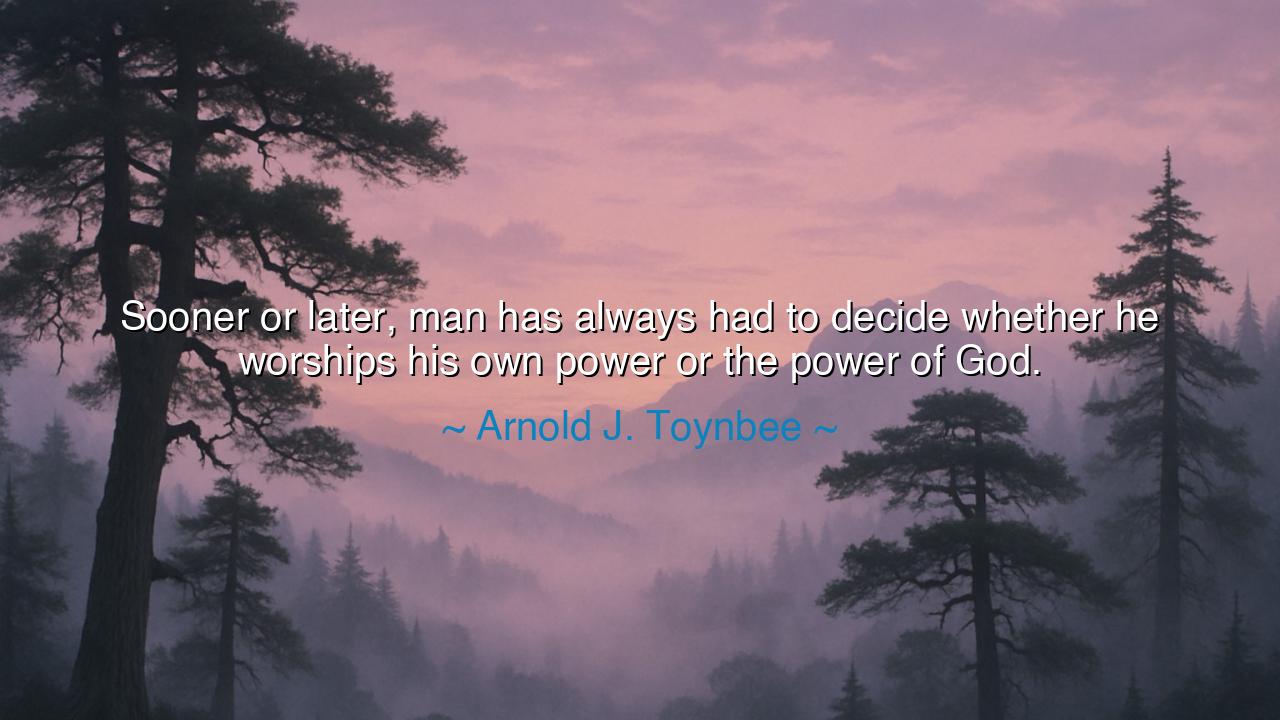
Sooner or later, man has always had to decide whether he
Sooner or later, man has always had to decide whether he worships his own power or the power of God.






The historian and philosopher Arnold J. Toynbee, a seeker of patterns in the rise and fall of civilizations, once proclaimed: “Sooner or later, man has always had to decide whether he worships his own power or the power of God.” These words pierce the veil of time, for they reveal an eternal choice faced by every generation. Humanity is blessed with great gifts—reason, strength, and the ability to shape the world. Yet these same gifts can become a snare, leading man to worship himself and his creations rather than the divine source from which all power flows.
To worship one’s own power is to place the self upon a false throne, believing that human will alone can rule the universe. This path leads to arrogance, conquest, and the illusion of invincibility. Empires rise through this pride, only to crumble beneath the weight of their own hubris. In contrast, to worship the power of God is to acknowledge the limits of human strength, to act with humility and reverence, and to seek harmony with a higher order. This choice is not merely a matter of faith but of survival, for entire civilizations are shaped by which power they serve.
History offers a striking example in the story of Babylon. King Nebuchadnezzar II, intoxicated by his empire’s grandeur, proclaimed that his own might had built the shining city. His worship of human power blinded him to the divine source of his blessings. According to the ancient texts, he was cast down, living like a beast until he acknowledged the sovereignty of the higher power. Babylon itself, despite its glory, fell in time—a lesson carved into the ruins that still stand as a silent warning to all who exalt themselves above the heavens.
In more recent times, the clash between these two forms of worship was seen in the age of World War II. Tyrants such as Adolf Hitler sought to dominate the earth, trusting only in the machinery of war and the cruelty of ideology. Their worship of human power led to devastation on a scale the world had never known. Yet even amidst this darkness, there were those who turned to higher ideals—freedom, justice, and faith in something greater than themselves. The eventual triumph of these forces showed that while the power of man may burn bright for a season, it cannot outshine the eternal light of truth.
Let this teaching be carried into the hearts of future generations: each person, each nation, must one day choose which altar they will kneel before. The worship of human power brings fleeting glory but lasting ruin, while the worship of divine power brings humility, wisdom, and enduring peace. The greatness of humanity lies not in exalting itself, but in recognizing the source of all strength and using its gifts in service to the eternal good. For in this choice lies the fate of civilizations and the destiny of the soul.






AAdministratorAdministrator
Welcome, honored guests. Please leave a comment, we will respond soon